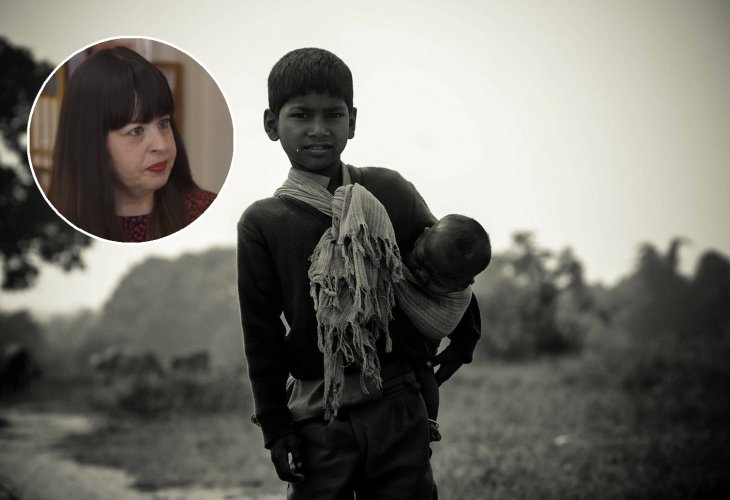From Despair to Hope: A Miracle in Nepal
Chabad emissaries in Kathmandu, Rabbi Hezki and Chani Lifshitz, share a heartfelt story that defies all expectations.

Chabad emissaries in Kathmandu, Rabbi Hezki and his wife Chani Lifshitz, have many heartwarming stories, but this one seems truly extraordinary.
Imagine a day when an orphaned child in Nepal appears at their doorstep, naked, wrapped in garbage bags, pleading, "Save me!"
"Bim came to us nine years ago, on the brink of death," shares Chani in an interview with 'Kan'. "I remember how he looked at me with burning, coal-black eyes, saying, 'You are Chabad House people, good people. Please help me, save my life.' Then he collapsed."
Chani and her partners acted swiftly. "We took him in, cleaned him, and tried to understand his situation. His entire body was covered in bags, bruises, wounds, and cuts."
Overcome with emotion, Chani couldn't hold back her tears
The child came from a remote village in southern Nepal and had lived on the streets for years. Once under their care, he became like their adopted son, calling them 'Mom' and 'Dad'. "For years, he moved in and out of orphanages, trying to find a place. At one point, he attempted to become a shepherd but was exploited. It's a very difficult story. Today, he tells me, 'Mom, if my story helps others to care for children from the streets, I'm okay with all of this exposure.'"
Seeing Bim for the first time, Chani was overwhelmed and broke down in tears. "We lifted him and laid him across chairs, then a doctor arrived. It's a process, and I can tell you that rehabilitating a street child, one who doesn't even know his age, means teaching him everything. Teaching him how to scrub his body, how to brush his teeth.
"And it's filled with nightmares. At night, as I walk by his room, I constantly hear his cries. I tell him, 'Mom's here, Bim. Mom's here.'"
Within all of this, Lifshitz recounts the difficult years of dealing: "We had to wean him off the drugs he used on the streets to survive, and until you arrive in Nepal, you can't grasp what poverty truly means. "We came to Nepal young, with a baby, and I remember seeing people without arms and legs. Their parents shut them in cardboard boxes as children to make begging easier when they're older because it elicits more compassion."

